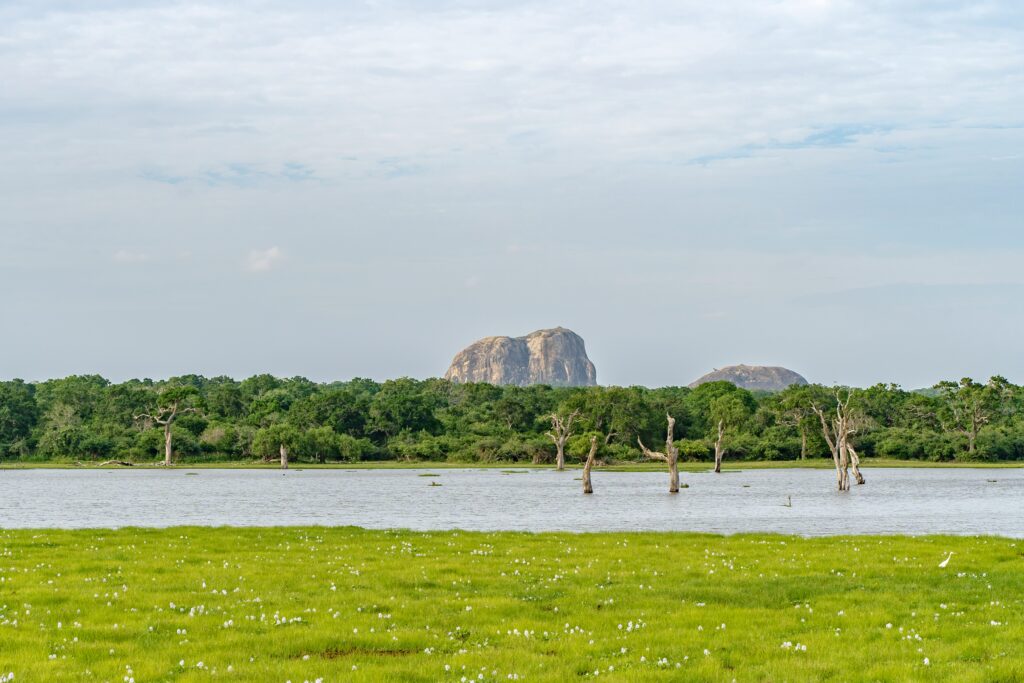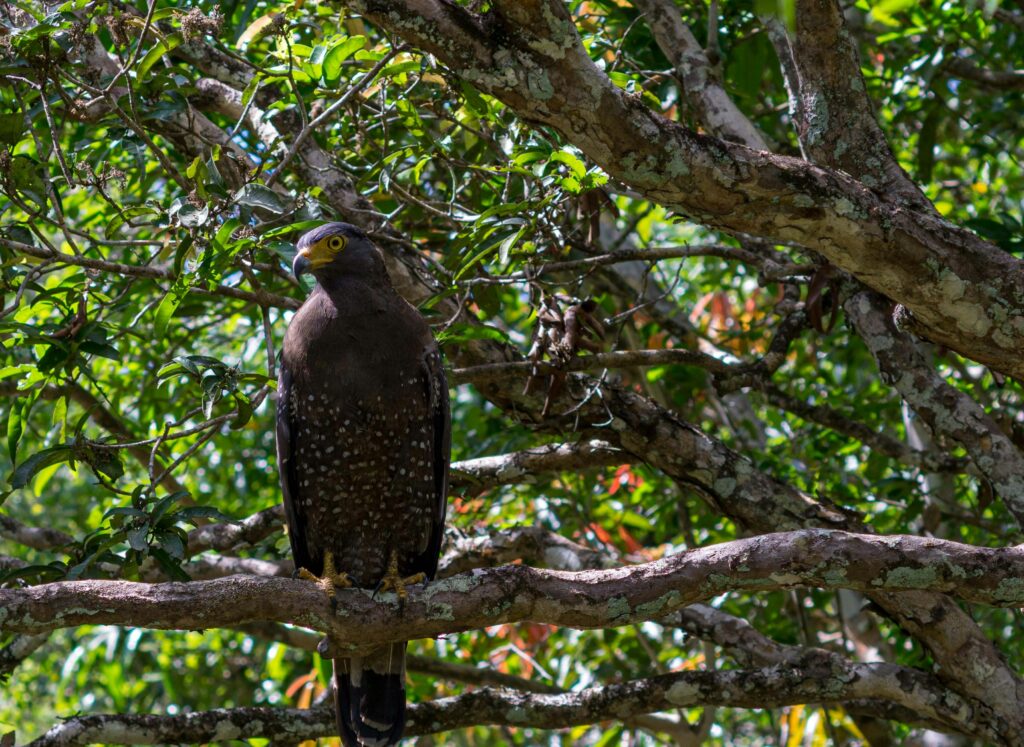
The “LIFE to Our National Parks” (LONP) project is making significant strides in restoring the biodiversity of Sri Lanka’s Lunugamvehera National Park, a crucial sanctuary for wildlife and a key migratory route for elephants. This ambitious initiative focuses on reversing the damaging effects of Invasive Alien Plant Species (IAPS), which have overrun large portions of the park, drastically affecting the habitat and feeding grounds for herbivores. Two of the most problematic species targeted by this project are Lantana camara (commonly known as Gandapana) and Eupatorium odoratum (Podi Singho Maran), both notorious for their aggressive spread and ability to choke out native vegetation, threatening the park’s delicate ecological balance.
The project is spearheaded by the Federation of Environmental Organizations (FEO) in collaboration with the Department of Wildlife Conservation (DWC), under the broader umbrella of Biodiversity Sri Lanka’s mission to enhance the vitality of the nation’s protected areas. These restoration efforts began in 2021, with manual removal methods aimed at eliminating Lantana camara and Eupatorium odoratum from large areas of the park, allowing native flora to regenerate. Early results have been encouraging, with native grasses returning and wildlife like elephants and deer rediscovering their natural feeding grounds.
Entry of the Champions
A major success for the LONP project has been the involvement of private sector partners. HNB Assurance (HNBA) was the first corporate entity to join the project in November 2023, funding the clearing of 15 hectares of invasive plants. By January 2024, the initial phase was complete, and HNBA committed to supporting the restoration of an additional 15 hectares, bringing their total contribution to 30 hectares of habitat revitalization. Their involvement has been a critical component in restoring essential feeding grounds for elephants and other herbivores, which is also helping to reduce human-wildlife conflict in nearby communities.
Following HNBA’s lead, DIMO Lanka recently joined the LONP project as a new partner, further strengthening the initiative by committing to restore another 15 hectares of land. With the inclusion of DIMO Lanka’s contribution, the total area under restoration now stands at 45 hectares, showcasing the expanding influence of the LONP project. This collaborative approach, involving both public and private sector stakeholders, reflects a growing recognition of the need for concerted efforts to address environmental degradation in Sri Lanka’s national parks.
Multiple Impacts
The project’s impact extends beyond environmental restoration. Local communities, many of whom were adversely affected by the economic fallout from the COVID-19 pandemic, have benefited from employment opportunities created by the project. Around 60 workers from nearby villages have been involved in the labor-intensive process of manually removing the invasive plants, providing them with a stable source of income. This not only uplifts the livelihoods of these communities but also fosters a sense of environmental stewardship among local residents.
The removal of IAPS is also crucial in addressing the ongoing human-elephant conflict in the region. As invasive species have taken over key habitats, elephants have been forced to move beyond park boundaries in search of food, often resulting in damage to crops and conflict with local farmers. By restoring the park’s natural feeding grounds, the LONP project aims to reduce these conflicts and create a more harmonious relationship between humans and wildlife.

A Transformative Initiative
As we celebrate the achievements of the “LIFE to Our National Parks” project, we recognise that meaningful change is only possible through collaboration. We invite more private sector companies to join this transformative initiative and contribute to the restoration of Sri Lanka’s precious ecosystems. Your partnership can amplify our efforts to revitalise Lunugamvehera National Park, enhance biodiversity, and support local communities affected by environmental challenges. Together, we can create a sustainable future where wildlife thrives, and local livelihoods prosper. Join us in making a lasting impact – your involvement is key to nurturing the natural heritage of Sri Lanka!
10 Best National Parks of Sri Lanka:
https://www.youtube.com/watch?v=9U-4lenJ9Do



